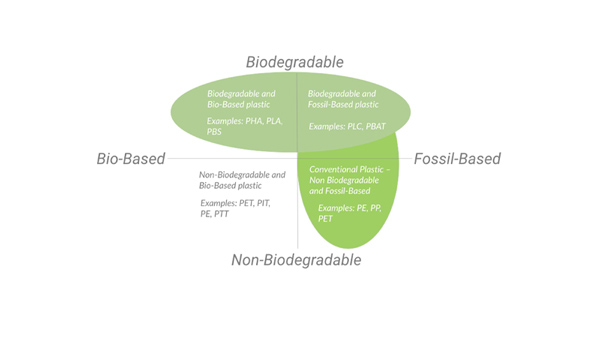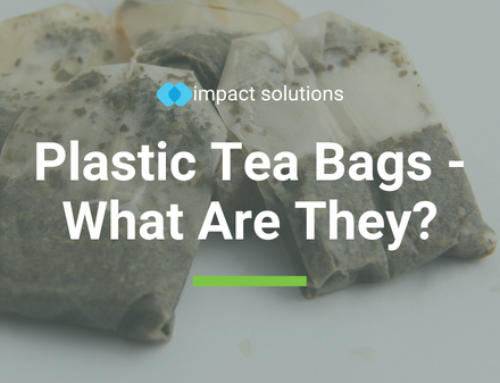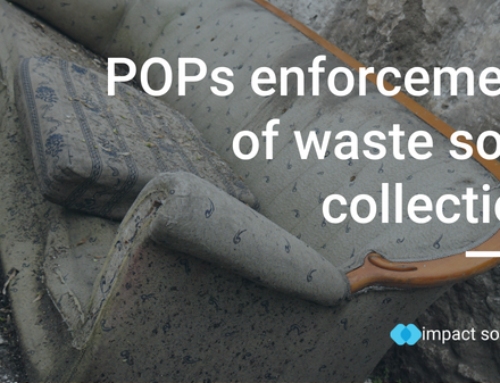There has been a lot of confusion as to whether or not bio-based plastics will be a workaround to the upcoming plastic ban in the UK and EU. A big part of this is due to terms used for plastics and their disposal being confused. The main differences between bio-based and fossil-based plastics, comes down to the materials made to create them, their biodegradability and where they end up.
What is the difference between bio-based and fossil-based plastics?
The difference between these plastics are the materials that are used to create them. Fossil-based plastics (commonly thought of as traditional plastics) are polymers made from petrochemicals, whereas bio-based plastics are made from plant-based sources, like starch and cellulose. Fossil-based plastics are more commonly known for being durable and long lasting, though this isn’t an exclusive feature to this material.
Are fossil-based or bio-based plastics more eco-friendly?
As fossil-based plastics don’t come from a renewable source and instead come from fossil fuels, a source that the world is trying to move away from, bio-based would be the more eco-friendly choice, as they are made from renewable sources.
The materials used to make these polymers aren’t the only determining factors as to whether or not they’re eco-friendly. A big misconception is that all bio-based plastics are biodegradable and that all fossil-based plastics are non-biodegradable. This is not true. The behaviour of these two plastics are tied to their end composition. This means, depending on the qualities wanted from them, both a fossil-based and bio-based plastic can be made to be non-biodegradable, biodegradable or compostable. Once manufactured, the most important factor to their footprint, is whether it will biodegrade or not. The end line is that the source of the material has no bearing on its functionality.
There are certain plastics that are made from either sources, but behave in the same way. An example of these are; PE or PET. Then we move onto plastics that are made from either source, but are biodegradable. These are called bioplastics, commonly linked to the confusion of all bio-based plastics being bioplastics.
Neither of these plastics are inherently bad, but as a society, we’re moving toward being more eco-friendly and bioplastics are the way to push this. If you’re even more concerned by the impacts of getting the sources for fossil-based plastics, it may be worth doing your research to find out what brands are using bio-based. Bioplastics are a huge step forward and don’t sacrifice convenience or durability for the consumer that is eco-conscious.
If you are interested to learn more, contact one of our experts today. Alternatively, feel free to follow us on Facebook, LinkedIn and Twitter.





